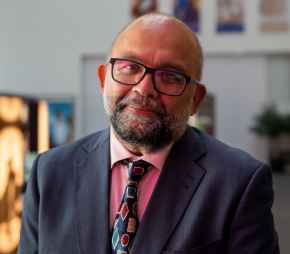New research has revealed the extent to which the West Midlands are frightened by the effects of dementia on them and their loved ones.
In a survey by Asda Pharmacy, half (49%) said that a loved one being diagnosed with dementia and taken into care is their worst fear. Whilst more than a third said the possibility of being diagnosed with dementia themselves is a greater concern than suffering from a terminal illness, losing mobility, or losing financial security.
However, despite this fear of the condition, people are often reluctant to seek help. Of those suffering from any early indicators that something is wrong, many are hesitant to confide in anyone about it, whether that be a family member or a health professional. Over half of the region (53%) said they would wait some time before speaking to a GP about memory loss. More than one in 10 (11%) said that they would only consider seeing a GP about it as a last resort through fear of wasting the GP’s time.
A quarter (25%) of the West Midlands would also avoid speaking to a loved one about memory health concerns until they had discussed with a Doctor first. However, people’s hesitancy to speak to a GP means many are missing out on early diagnoses, something which is essential to treat the condition effectively. Dementia is the UK’s biggest killer*, but the survey showed that only 12% of the region knew this, instead believing that cancer (50%) and heart attacks (28%) were the most common fatal causes.
In fact, there is an assumption amongst a significant number of the region (60%) that memory loss is just ‘part and parcel’ of growing old. Whilst forgetfulness is a natural occurrence, there is a thin line between this and dementia.
Maq Din, Healthcare Clinical Services Manager at Asda Pharmacy, says:
“Those experiencing age related memory loss will more often than not recall what they have forgotten in time, however dementia sufferers lose their memory much more permanently.”
Asda Pharmacy are training all pharmacy employees to recognise the early signs of dementia to ensure that they are able to spot when patients may be developing the condition. The move is to assist more dementia sufferers in getting the all-important early diagnosis as soon as possible.
As Maq explains:
“Early diagnosis of Alzheimer’s and dementia is absolutely essential to treat the conditions effectively, which is why at Asda Pharmacy we are training all staff to recognise the symptoms. Quite simply, the sooner a diagnosis is made the more informed and resourced the sufferer and their loved ones can be. By planning carefully for the future and taking the correct medication in good time, you can have far better control over the progression of the illness.”
There are steps and exercises that can be undertaken to give the brain the best chance of avoiding dementia and having an active mind is highly important. However only 29% of the region are currently opting to use such techniques.
Jennie Bond, Television Presenter, has personal experience with dementia as her mother is currently in the advanced stages. She says:
"She doesn’t know who I am, or who she is. To some extent she has passed beyond the point where she is constantly frightened. She's generally in a calmer, more peaceful frame of mind.”
“We were too late in seeking help for Mother. Perhaps she could have had some medical support if we had asked for a diagnosis sooner. It's a condition that follows a clear pattern so I'd encourage people to get help as soon as possible and face up to the illness. But it's important to act sensitively and keep in mind quite how frightening it is for the sufferer.”
















